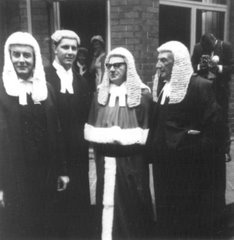Note: there are huge gaps in my knowledge. I haven't read any Graves or Scott or Manzoni, so this is rather incomplete. Also, I'm not sure I have a particularly coherent idea of what actually makes something a historical novel.
1. Stendhal, The Charterhouse of Parma
(Man, this book was fun to read! I'm not totally sure that it counts as a historical novel, since the events took place during Stendhal's lifetime and he actually did fight with Napoleon. But it has a historical novel air that is somehow missing from, for example, War and Peace. I think Stendhal based a lot of the court intrigue off much older Italian memoirs.)
2. Marguerite Yourcenar, The Memoirs of Hadrian
(A really wonderful book, and it weaves its spell not through physical period detail - of which there is surprisingly little - but by recreating habits of thought.)
3. Penelope Fitzgerald, The Blue Flower
(A life of the poet Novalis and Fitzgerald's last, great book. One of the saddest last pages in modern literature. Her final three or four books were all wonderful historical novels.)
4. Anthony Burgess, Nothing Like the Sun
(I have a weakness for lives of artists. This one is about Shakespeare, written in a beautiful mix of modern and Elizabethan English.)
5. Virginia Woolf, Orlando
(Proceeds gleefully through three hundreds years of history with Queen Elizabeth and Alexander Pope as main figures, along with a shifting stable of characters who appear to be virtually immortal and keep changing gender. One of the most delightful and baffling and infuriating books I've ever read.)
6. John Fowles, The French Lieutenant's Woman
(I've never quite looked at a Victorian novel the same way after finishing this book, even though some of its narrative tricks annoyed me a great deal.)
6. Gore Vidal, Lincoln
(I haven't read much other Vidal outside the essays, but I did enjoy this book a lot. I'm not sure it's of the same caliber as the other books on the list, but we need some Americans on this list.)
7. J. G. Farrell, The Siege of Krishnapur
(A wonderful read - immensely funny and exciting and also an interesting meditation on the nature of progress. I was a little offended by how the Sepoys were portrayed, but I got over my outraged national feeling - Farrell's representation makes a lot more sense than a noble Hollywood Sepoy walk-on would have.)
8. Italo Calvino, The Baron in the Trees
(A delight! Probably the most purely pleasurable book on the list.)
9. Patrick White, Voss
(A rather disturbing tale about the exploration of the Australian outback in, I think, the early 19th century. I read it a long time ago and have forgotten most of it except for the rather horrifying conclusion.)
10. James Clavell, Shogun
(When I was twelve, I was pretty sure this was the greatest book ever written. I'm scared to look at it again because I have no real desire to find out that it's just cheesy epic romance. Anyway, even if it is, it is damn good cheesy epic romance.)
Subscribe to:
Post Comments (Atom)

No comments:
Post a Comment